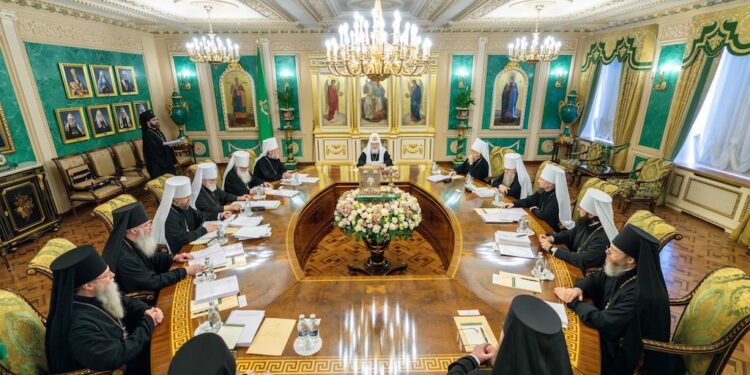The Moscow Patriarchate has strongly condemned Ecumenical Patriarch Bartholomew for his recent adoption of a law banning the Ukrainian Orthodox Church. In a statement from the Holy Synod, the Moscow Patriarchate criticized Patriarch Bartholomew for exacerbating the ecclesiastical schism in Ukraine, referring to it as a “witch hunt.”
The statement expressed deep sorrow over the role played by Patriarch Bartholomew and supporting Hierarchs in the division within the Ukrainian Church. It accused them of taking a one-sided, hasty, and canonically unsound stance, which only worsened the situation. The Moscow Patriarchate claimed that those recognized by the Phanar as legitimate church leaders in Ukraine were the same individuals who advocated for the law banning the Ukrainian Orthodox Church.
In addition, the statement accused Patriarch Bartholomew of supporting the prosecution and arrests of Ukrainian Orthodox clergy, likening his actions to historical figures who persecuted religious leaders. It held Bartholomew personally responsible for the persecution of believers in Ukraine by state authorities with the aim of destroying the canonical Church.
The Moscow Patriarchate’s statement pointed to a coalition of senior government officials, MPs, radical politicians, and public figures, including members of schismatic organizations and the Ukrainian Greek Catholic Church, as the driving force behind the new law. It claimed that the legislation aimed to eliminate the Ukrainian Orthodox Church and compel its faithful to join other religious organizations.
The statement drew parallels between the current situation and past religious repression, such as the destruction of the Albanian Orthodox Church under Enver Hoxha’s regime in the 1960s. It highlighted Patriarch Kirill of Moscow’s concerns about the persecution of Ukrainian Orthodox believers raised with international organizations like the United Nations, the OSCE, and the Council of Europe.
The Moscow Patriarchate criticized the West for turning a blind eye to the violations of religious rights in Ukraine, despite recognition by some experts and human rights organizations. It described the new law as a political tool to legitimize the destruction of the country’s largest religious community, incompatible with the rule of law.
The statement also mentioned an anti-church campaign by Ukrainian media targeting the “canonical” Orthodox Church under Metropolitan Onufriy, leading to the illegal seizure of church property. Despite these challenges, the Moscow Patriarchate stated that the political leadership in Ukraine felt compelled to ban the Church entirely.
Translated from Russian by: Konstantinos Menyktas

